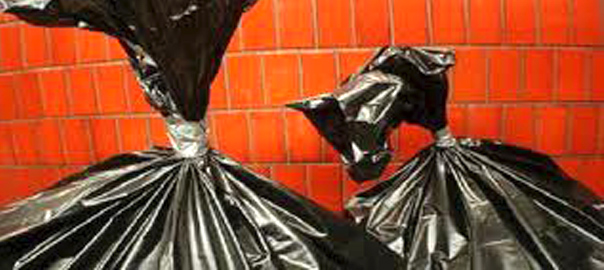Telephone Torah Study: Taking Out the Garbage

In Tzav (Lev. 6:1-8:36), we’ll study how we can transform our seemingly inane daily chores into a profound spiritual and creative life. Telephone Torah Study, this Thursday, March 13, 4-5pm.
Jump to: Suggested Reading | Selected Verses of the Week
To join in on the conference call, please dial 702-851-4044, when prompted punch in 2, then our pass code 22252#.
URJ commentator Robert Tornberg’s short article ‘What Can We Learn From Taking Out the Garbage?,’ will provide our stepping off point for this discussion.
In reading Parashat Tzav just one week after reading Parashat Vayikra, one cannot help but notice how, on the surface, these two portions are nearly identical. Both of them go into great detail about the five major kinds of sacrifices offered in the Tabernacle in the wilderness (and later in the Temple). There are, however, some obvious differences:
- In Vayikra, in the very first line, God instructs Moses to “Speak to the Israelite people” (Leviticus 1:1) and explain the laws of the sacrifices, while in Tzav Moses is told to “Command Aaron and his sons . . . ” (6:1). In both cases very similar explanations of the various sacrifices follow.
- In Tzav, the entire end of the parashah (8:1-36) contains a detailed description of the consecration of the Tabernacle and the priests. No such description is included in Vayikra.
There are some more subtle differences as well. For instance, the order in which the various sacrifices in the two portions are described is different. And, in discussing the burnt offering (theolah) in Tzav there is a focus on a perpetual fire that must be kept burning on the altar (6:6). Both of these factors provide ample opportunity for interesting questions and a variety of responses, which will not be our focus here.
There is another subtle difference, however, that is very easy to overlook when we struggle through detailed descriptions of material as remote from our lives as these sacrifices. In discussing the olahthe text tells us:
The priest shall dress in linen raiment, with linen breeches next to his body; and he shall take up the ashes to which the fire has reduced the burnt offering on the altar and place them beside the altar. He shall then take off his vestments and put on other vestments, and carry the ashes outside the camp to a pure place. (6:3-4)
Continue reading on Reform Judaism’s website
1. [The priest] shall then take off his vestments and put on other vestments, and carry the ashes outside the camp to a pure place.(Lev. 6:4)
2. A perpetual fire shall be kept burning on the altar, not to go out. (Lev.6:6)
3. Then Moses brought Aaron and his sons forward and washed them with water. (Lev. 8:6)




